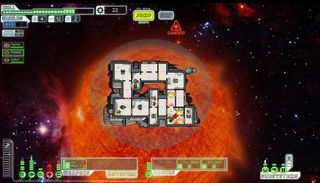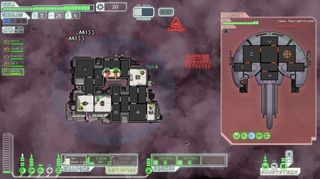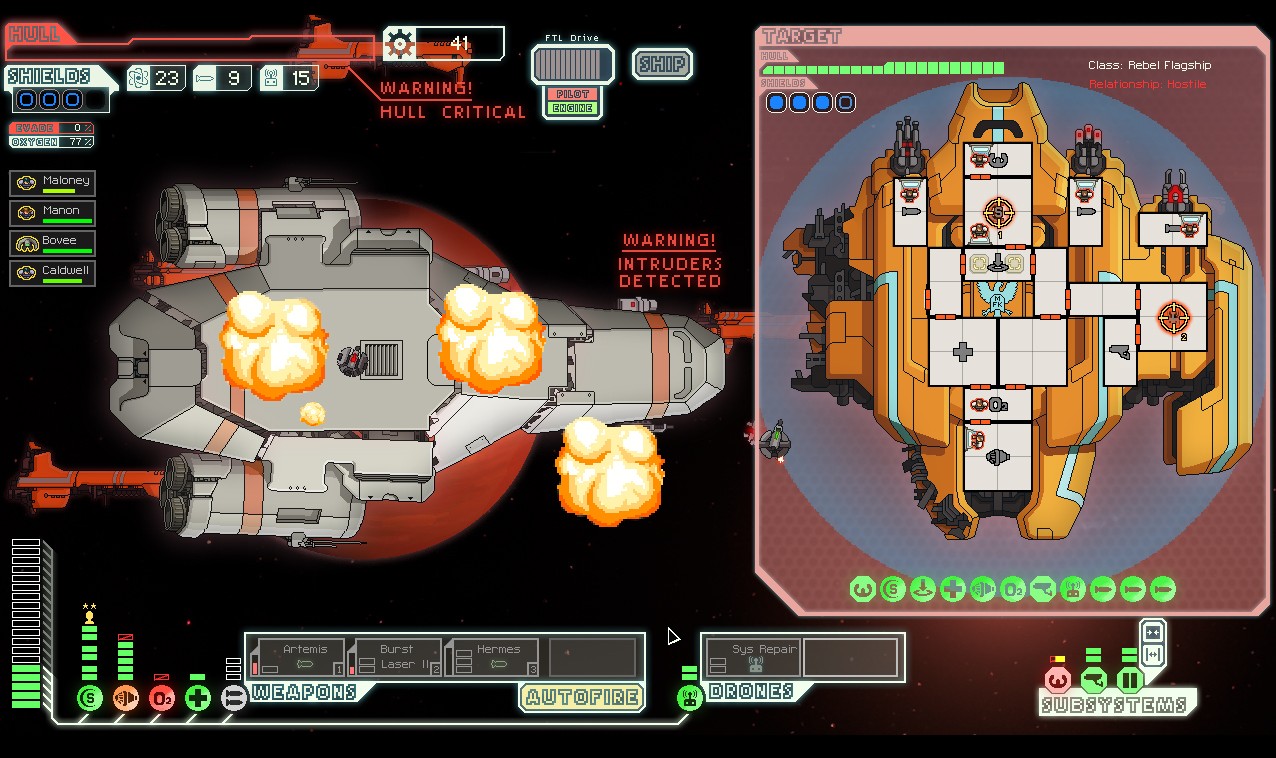Our Verdict
Polished and involving, FTL spews superb sci-fi adventures like a cornered Mantis boarder spews hot formic acid.
PC Gamer's got your back
Expect to pay: £7 / $11
Release Out: now
Developer: Subset Games
Publisher: Steam
Multiplayer: None
Link: www.ftlgame.com
The fellow nursing the mug of Roc ale in the corner of the cantina doesn't have to tell you he's an FTL captain. The laser burns on his jacket, the monkey wrench in his belt, and the broad grin creasing his craggy, careworn face give him away.
Sit down opposite him and you invite a torrent of torrid tales.
“See this scar? I got that when I targeted my own bridge with an incendiary missile. Had some Mantis boarders running amok – it was the only way to take them down.
“Buy me a pint and I'll tell you about the time my ship, the Belle Guano, tangled with a pirate cutter twice its size near the Slug homeworld. Trust me, you don't know fear until you've had to shut down your own shields, life-support system, and sensors in order to summon the power necessary to launch an anti-ship drone.”

Every one of FTL's evening-sized odysseys bulges at the bulkheads with dramatic dogfights, tough trading decisions and bittersweet twists of fate. If you've ever yearned for a randomness-heavy 2D Firefly game – a top-down Star Trek or Blake's Seven turn-based strategy game – then yearn no longer.
Adventures begin with ship selection. Initially there's just one vessel type available. Completing enigmatic quests widens the choice on subsequent playthroughs.
Whatever craft you're captaining, the ultimate objective is always the same: deliver a vitally important message to the Federation fleet by battling, trading, and upgrading your way through a randomly generated web of sectors. Every sector is its own navigable web of unscripted surprises.

Because a powerful rebel armada is always hot on your heels, you can't linger in any sector indefinitely. Speed is of the essence, but so too is scrap – FTL's precious currency. Knowing that resistance stiffens the closer he gets to his goal, the sensible skipper loiters for as long as possible in order to maul and recycle the maximum enemies.
It's rare that a turn passes without a hard choice or a satisfying skirmish. One minute you're looking on as your lasers and missiles steadily savage the systems and unstitch the hull of an outfought/out-thought foe, the next you're deciding whether to intervene in an intergalactic mugging, rescue a mad castaway, or send crew to investigate an eerie space hulk. Pauseable combat and multiple-choice event texts mean there's always limitless time for mulling over options.

There are hundreds of possible encounters, and countless ways of improving your ship. Bad luck and poor decisions regularly lead to heartbreaking setbacks and sacrifices. So far I've refused to hand over any crew to bullying slavers, but have on several occasions had to sell indispensable kit in order to finance essential repairs or fill an empty tank. Running out of fuel is one of the game's scariest situations. You're forced to drift forlorn and regret-wracked waiting for either a good Samaritan or a rebel coup-de-grace.
FTL feels like a project that's been thoughtfully tweaked over several years. Features work hard and are well meshed. Texts are trim and nicely phrased. Even Ben Prunty's twinkling soundtrack fits beautifully. Scanning the game's impressive superstructure for vulnerable exhaust ports and shot traps, just about the only weakpoints I've managed to identify are the lack of personnel histories, and the painfully slow rate of vessel unlocks. A few lines illuminating the backgrounds of new crewmen, and some more generous blueprint dispensing would nudge this unmissable sci-fi story generator even closer to perfection.
Polished and involving, FTL spews superb sci-fi adventures like a cornered Mantis boarder spews hot formic acid.

The best part of Marvel Rivals Season 1 is Mister Fantastic's obnoxiously fun chest-bump attack and his ridiculously OP kit

Is the new RTX 5070 really as fast as Nvidia's previous flagship RTX 4090 GPU? Turns out the answer is yes. Kinda.

It's time for me to admit that AI-accelerated frame generation might actually be the way of the future and that's a good thing
